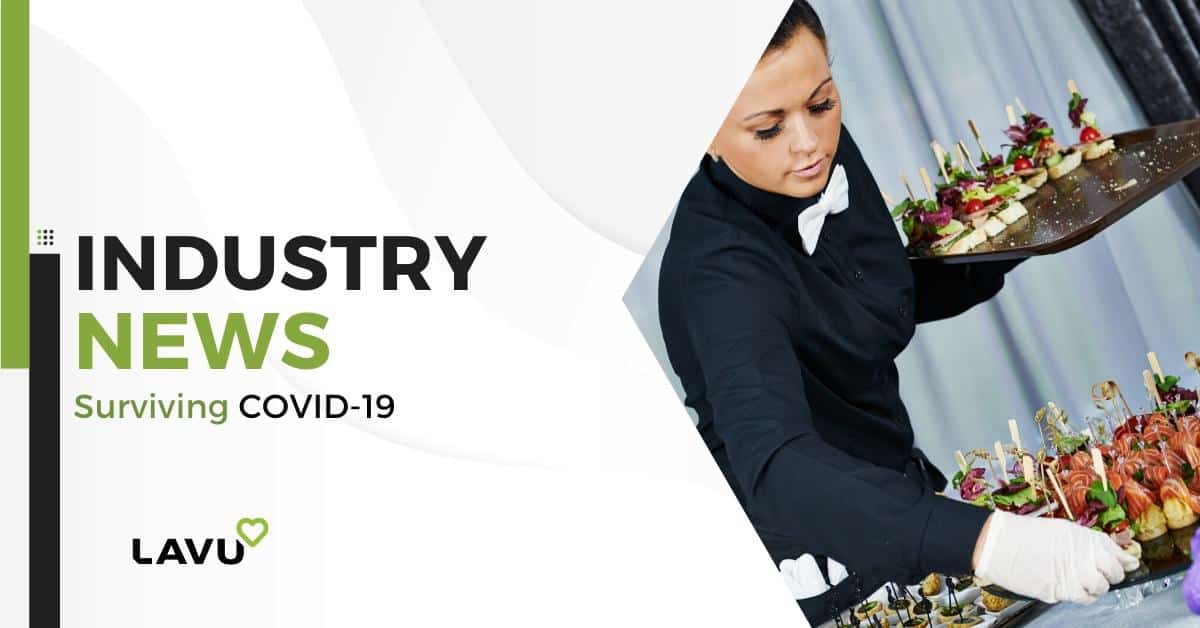Many catering businesses have been hit especially hard by the pandemic. Company lunches are a thing of the past; big weddings are postponed. What can catering businesses provide outside their typical scope of business? While you may not be able to cater 1,000-person events, you could prepare a thousand meals for pickup per day. Or if you have a food truck and your local government is still allowing its operation, now is the time to start traveling through local neighborhoods on lockdown.
We’ve put together a list of ways your catering business can continue to thrive during COVID-19 social distancing. Here are tips on how to adapt to new times and come out of this crisis with new revenue streams and a more reliable catering company than ever before.
When you can’t predict the future, the best thing you can do is find the problems you can solve, and start offering solutions. Whether your impact is through donating food to struggling families or visiting areas that are unable to access food, you’ll find the way to do the most good and come out of this pandemic with a thriving catering business.
1. Meal Prep Kits with Pickup Options
Get on the meal prep train, just as other restaurants and foodservice businesses are right now. Don’t let your inventory go to waste; start offering your best-sellers as meal prep items. As a catering company, you already know how to create meals in a mass-production style. Now it’s time to skip the cooking step and give your customers the meals they need right now.
Add your new meal prep kits and pickup options to your POS system to make ordering a breeze for your staff and online customers alike. You can sell your meal prep kits online through your online ordering platform.
2. Utilize Your Food Truck
If your catering company has a food truck, now is the time to make the most of it. Food truck owners in Nashville are driving through neighborhoods to serve their local communities and making a huge impact. Landon Lyon, the president of the Nashville Food Truck Association, stated, “We’re contacting people in that neighborhood to notify people through Facebook groups, to Nextdoor apps, and get the word out.”
If you’re open for business or driving your food truck around the neighborhood, make sure you use every resource you can to notify local consumers. People are in their homes, they are food insecure, and they want to see you open. Make their day by driving by their home and offering straight-to-your-door food truck services.
3. Sales to Retail Customers
With some grocery stores low on stock, look into picking up retail customers. Catering Magazine recommends reaching out to local retail vendors and grocers to open up new revenue streams, even when the world isn’t suffering from a pandemic.
What you sell doesn’t even need to be a specialty item. Something as simple as a loaf of white bread sold to your local grocer can keep your catering business afloat before the economy recovers. Remember, this is a temporary setback, and those that adapt to changes now will be in a better position to thrive in the future.
Here are some examples of items you can sell in bulk to grocery stores:
- Dips
- Prepared items such as meatloaves
- Meal prep kits
- Bread (sandwich bread, buns, cakes, bakery items)
- Excess raw ingredients
Check the legality of selling prepared foods to grocers and other retailers in your state before proceeding with this method. Legality may vary by state and county.
4. Online Ordering
Those lunches and parties you used to cater might be on indefinite hiatus, but that doesn’t mean you can’t find opportunities to reach clients. Now more than ever, it’s essential for all food-and-beverage businesses to have an online presence. Take this time to transition to online ordering, so that when your customers are ready to place their next order, they know exactly where to find you. Look for a system that gives you the ability to set order prep times and establish delivery zones.
5. Start Booking Future Orders Now
When a client calls to cancel catering for an event, it’s heart-wrenching. Don’t let that get to you. Instead, redirect them toward making a deposit on a future date instead. Look to next year’s calendar, and start getting the word out that you have openings in the future with a content marketing campaign (think social media, blogging, and email marketing).
Content marketing is the least expensive way to drive traffic to your catering website, and will continue benefiting your company long after the campaign ends.
Join social media event pages for next year, such as local art shows, festivals, and fairs. Connect with other members and moderators to book future events. Create partnerships with wedding planners and vendors who can refer you as part of their package deals. Reach out to your network, and start working on marketing campaigns to book future events.
You could even offer a gift card-type promotion. With weddings postponed, a catering gift card is a great gift to help pay for a future wedding.

